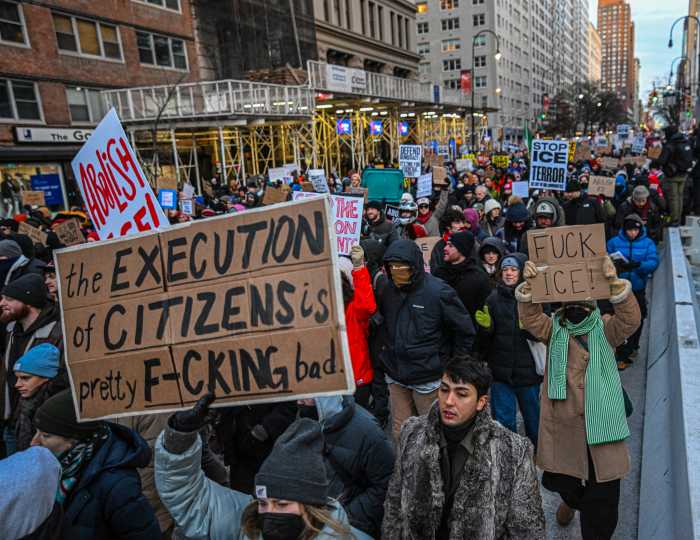It was simple for Sharice Simons. Too simple, some would say. The Bronx woman obtained a change of address form from the post office, checked off the ‘send all family mail’ box, and within a matter of weeks began receiving mail intended for Susan Simons of Astoria.
Susan, not related to Sharice, received an address change confirmation after Sharice had begun rifling through sensitive and personal information like Susan’s W-2 form, which contained her social security number.
Months later, and still reeling from the mail fraud that wreaked havoc on everything from her credit to her magazine subscriptions, Susan Simons hopes the U.S. Postal Service (USPS) will modify their change of address policy.
While mail fraud is a crime - for which Sharice Simons has been convicted and currently awaits sentencing - Congressmember Anthony Weiner has proposed such a law. City Councilmember Peter F. Vallone, Jr. and State Senator Jeff Klein are supporters of Weiner’s bill.
“They think they have a system that works and it doesn’t,” Simons said of the USPS’ change of address procedure, which requires no proof of identification if a request is submitted via snail mail. Online requests require ID proof in the form of a credit or debit card.
“I wasn’t getting real answers from the post office and I didn’t know what to do and didn’t want to start going where I didn’t need to go,” Simons said, explaining how she came about contacting Vallone, which put the wheels in motion for potential federal legislation.
“If you go through a checklist of how to protect yourself from ID theft, I’ve done everything I can - shredder at home, credit reports,” Simons explained, noting the irony in how easily her security was jeopardized. “The Postal Service - they’re the ones aiding and abetting.”
However, according to the U.S. Postal Inspection Service (USPIS), which deals with cases of mail fraud like Simons’, only .01 percent of the 43 million address changes the USPS processes across the country each year are fraudulent.
“Believe me,” said USPIS Postal Inspector and Public Information Officer Al Weissmann, “we don’t want one victim of fraud through the change of address system - but based on those numbers the system is doing pretty good.”
Weissmann added that the USPS wants “the honest person to be able to do this [change addresses] as conveniently as possible.”
But what about the dishonest people out there? What about those who file the 4,300 annual fraudulent change of address requests?
Vallone, Klein and Weiner agree with Simons that the USPS can do a better job protecting its customers. Weiner’s bill, which he will introduce at the end of Congress’ August recess, would modify USPS’ notification process to ensure that individuals like Susan Simons have the chance to contact the Postal Service before any updated information is processed.
“I can’t imagine that anyone would oppose it,” Vallone said of the legislation, the details of which are still being ironed out. “It’s a no brainer.”
George Flood, the Communications Programs Specialist for the USPS, echoed Weissmann in his support of the current system - he was quick to note that Sharice Simons had been caught and prosecuted - but said the USPS is open to suggestions and is awaiting the proposed legislation.
If that legislation does pass, Susan Simons said it would be “very rewarding” and admitted she would feel partially responsible.
“I’ll feel like I was the poster child for it,” she said.

































